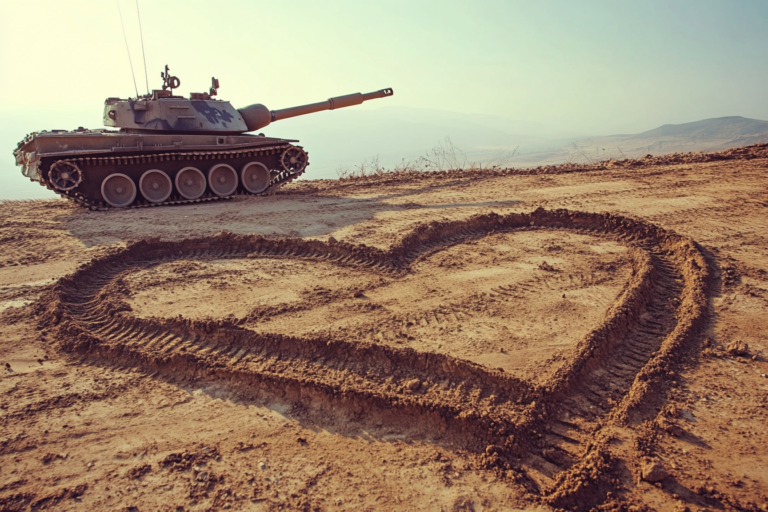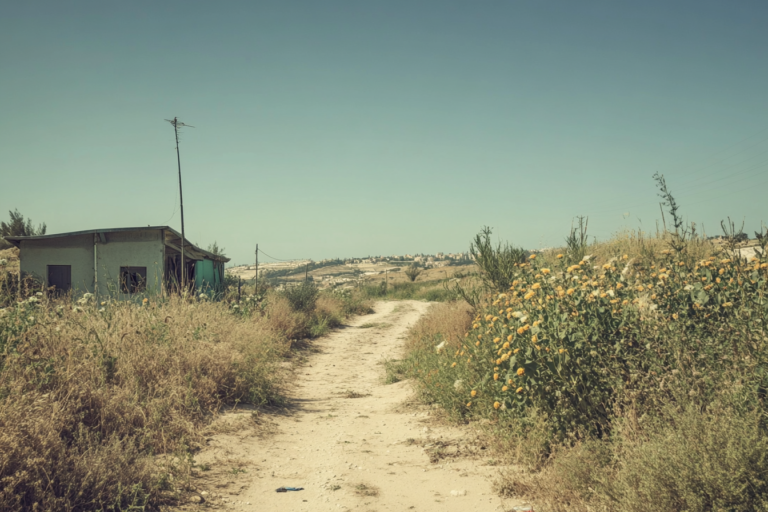Shabbat arrives here just like it does anywhere else in the world, but in the field, it has a unique feel. As the sun sets over the base, marking the beginning of Shabbat, I pause. Out here, where every day is a blend of routine and unpredictability, there’s something grounding about observing Shabbat. It’s a chance to step back, take a breath, and find a sense of peace in a place where calm isn’t always guaranteed.
Being a modern Orthodox soldier is a balancing act, one that blends devotion to the Torah with the responsibility of defending our land. There’s an inherent tension in fulfilling both roles. Shabbat is meant to be a time of rest and reflection, a day to disconnect from the demands of daily life, and yet here, it’s not always possible to fully separate myself from the tasks that need to be done. But I’ve learned that observing Shabbat in the army doesn’t mean abandoning my duties; instead, it means finding ways to honor both commitments—to my faith and to my mission.
We sing not just as soldiers but as Jews, as people bound together by history, faith, and purpose.
One of the most meaningful parts of Shabbat here is gathering with other soldiers for Friday night prayers. Together, in the makeshift shul we set up on base, we sing the words of “Lecha Dodi” with a renewed fervor. There’s something humbling about the sound of voices rising against the backdrop of the field, and for a moment, it feels as though the world beyond falls away. We sing not just as soldiers but as Jews, as people bound together by history, faith, and purpose.
Out here, I feel the presence of those who came before us—the generations of Jews who kept Shabbat in times of danger, those who prayed in secret, or even in the shadow of war. It’s a reminder that Shabbat has always been our sanctuary, no matter the circumstances. And though we are armed and ready for anything, on Shabbat, there’s a sense of vulnerability, a quiet surrender to something greater than ourselves. For those 25 hours, I feel connected to Jews everywhere, across time and place, all observing Shabbat in their own ways.
But the reality is that Shabbat here isn’t always simple. Sometimes, we’re called to action, and duty requires us to break from prayer or move away from the Shabbat table. In those moments, I feel the weight of what it means to be both a Jew and a soldier. When we are needed, we go without hesitation, knowing that protecting our people is itself a mitzvah, a commandment. It’s not ideal, but it’s a reminder that faith in action can take many forms.
I think of Shabbat meals back home—the warmth of family, the endless conversations, the sense of wholeness that comes from being with loved ones. Here, Shabbat meals are different. We share what we have, sometimes just a few items that remind us of the meals we’re missing, and we make blessings over bread and wine as best as we can. The simplicity makes it sacred. Every bite, every prayer feels like an offering, a way to elevate the ordinary to something holy.
One of the most profound aspects of Shabbat here is the Kiddush. Standing among my fellow soldiers, reciting the words of “Vayechulu,” I feel a sense of purpose that transcends the day-to-day responsibilities. Kiddush here feels different. It’s not just a blessing over wine; it’s a declaration of our commitment—to our faith, to each other, and to the land we’re protecting. Each word reminds me why I am here, serving not just as a soldier but as a representative of a people who have held on to their traditions through every challenge.
As Shabbat draws to a close, we gather for Havdalah. There’s a sense of renewal that comes from the ceremony, as if Shabbat has given us the strength to face the week ahead. The flickering flame of the Havdalah candle is a reminder that we carry a piece of Shabbat’s peace into the days to come. And as I inhale the scent of the spices, I hold on to the sweetness of Shabbat, even as we return to the demands of service.
Being a religious soldier isn’t always easy, but Shabbat has taught me that faith and duty can coexist. Each Shabbat on the front lines is a lesson in resilience, in finding ways to honor both my commitments and my beliefs. It’s a reminder that Shabbat doesn’t depend on where you are but on the intentions you carry. Out here, in the heart of the land we protect, I feel closer to my faith and to the reason I serve.
As I step into the new week, I carry the essence of Shabbat with me—the quiet strength it gives me, the connection to home and to tradition. And with that, I am ready to face whatever lies ahead, knowing that each Shabbat will come again, a steady rhythm in an otherwise uncertain world.



